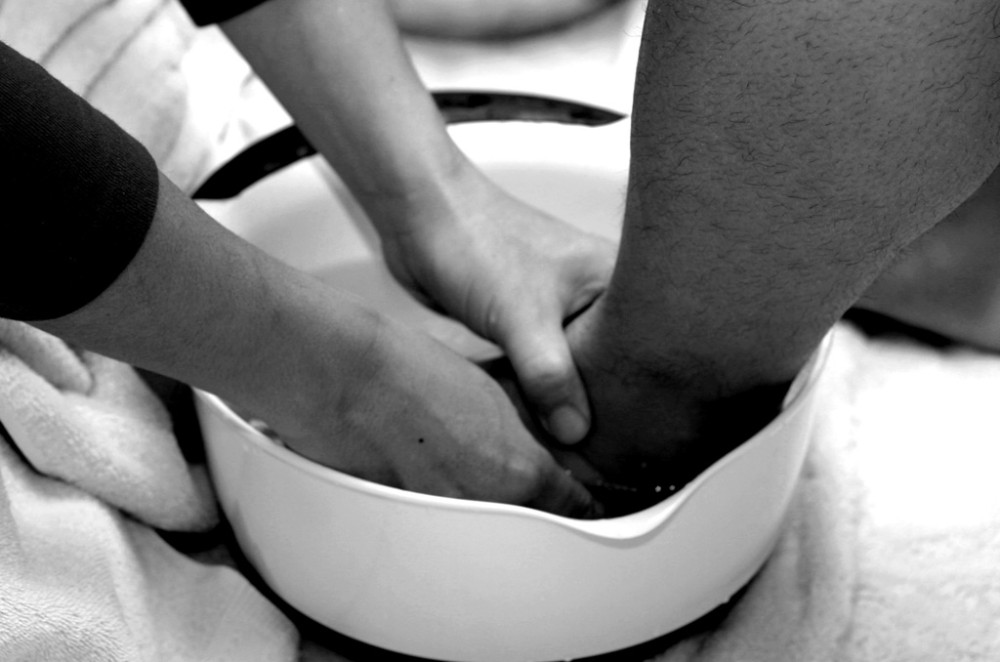Washing feet at a church gathering is a political act
The ritual washing of feet in the way of Jesus witnesses to an alternative social order.
Next week I’ll have my feet washed. And I’ll wash someone’s feet.
The Ekklesia Project will gather to explore the theme of The Church As Politics, addressing issues such as “the rise of nationalism and the ascendance of populist figures, the widespread employment of racial and ethnic fears and grievances, attacks on governmental, judicial, journalistic, and scientific institutions, and the increasing vulnerability of migrants, refugees, and all displaced people.”
I’m writing the liturgies for our three worship services and I have landed us in lament. We will surface in speech and song—as many of the psalms do–grief, rage, doubt, and despair. Wherever we may find hope in our time together—in worship, in the plenary sessions, in table conversations—I don’t want us to rush to it too quickly. It’s hard for people of privilege to sit with discomfort, to feel bereft of solutions, to resist the impulse to fix something (or someone).
When we wash each other’s feet, we’ll be reminded of the scandal of the incarnational faith we profess: how flesh and blood and birth and danger are central features of the story we live by, a story about poverty, homelessness, political oppression, refugees on the run, authorities asking for papers, sham trials, torture, and capital punishment.
When we wash each other’s feet we’ll be reminded that divine love meets us in ordinary things, in ordinary ways: water for washing and the touch of human hands. We’ll be aware of how much our bodies (our feet, especially) embarrass us; how we prefer to live our lives (and our religious convictions) in our heads.
The ritual washing of feet in the way of Jesus is a political act. It witnesses to an alternative social order (hence the theme: the church as politics) in which power is found not in military prowess but in suffering love; in which leadership doesn’t depend on ego and the diminishment of others but on humility and open-heartedness.
The ritual washing of feet in the way of Jesus recalls the upside-down social order envisioned in that bold, defiant proclamation of Mary (no docile maiden here): He has scattered the proud in the thoughts of their hearts. He has brought down the powerful from their thrones, and lifted up the lowly; he has filled the hungry with good things, and sent the rich away empty. (Luke 1:51–53).
The ritual washing of feet in the way of Jesus signals radical dependence, not independence. It locates the truth of the gospel in human bodies—our own and the vulnerable bodies of our neighbors: the despised, the dispossessed, the detained.
The ritual washing of feet in the way of Jesus reveals that love is the only power that can bind people together and also set them free. From fear, from self-hatred, from the wounds of the past, from government cages.
No military parades or puffed-up politicians for me this week. Would that the political order that fetishizes flags and demands my singular allegiance enact real justice—which, as Cornel West famously said, is what love looks like in public. Would that it had the courage to enact policies that say to every person: “I wish I could show you, when you are lonely or in darkness, the astonishing light of your own being.”
It would feel like the caress of loving hands on weary feet.
Originally posted at Intersections







